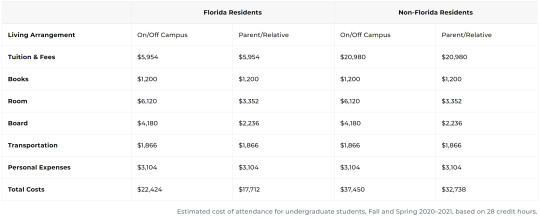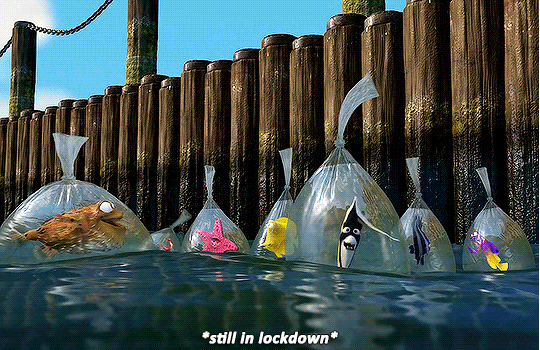Text
Catching Up When You’re Feeling Down
Mental illness can be overwhelming. If you’re not weary, or even if you are, it can become all-consuming. An inability to focus, sleep or find motivation are some of the most universal and debilitating symptoms. It’s easy to fall behind when issues like this pop-up, and easier to give up once you’re behind. The idea of looking at all that work all together can be overwhelming but the sooner you can conquer that fear the better chance you’ll have of catching up.
libbyincollege.com/in-class/catching-up-when-youre-feeling-down

Recognizing the Signs The first part of getting back on track is admitting something is wrong, and the first step in admitting something is wrong is recognizing the signs. The earlier you can recognize the signs the quicker you can get help. Healing takes time and so the quicker you start recovery the quicker you can get back on track. Here are some things to be aware of, if you think any of these things might be affecting you I encourage you to seek help from a professional.
Burnout
Burnout can be described as “a state of physical or emotional exhaustion that also involves a sense of reduced accomplishment and loss of personal identity.” It can be caused by excessive stress and overworking. Some signs to look out for:
Negative Outlook or Irritability
Lack of Motivation or Ability to Concentrate
Sleep Issues
Depression
Depression is “a persistent feeling of sadness and loss of interest��� that “affects how you feel, think and behave and can lead to a variety of emotional and physical problems.” Depression is more than being sad, it can easily become debilitating. If you start noticing the following signs it might be time to seek help.
Negative Emotions: Sad, Irritable, Hopeless, Agitation
Trouble Sleeping or Concentrating
Loss of Interest or Energy
Anxiety
Anxiety comes in many forms and can become overwhelming. Fortunately, there are many treatment options for generalized anxiety disorder. Symptoms of anxiety may seem obvious but some less apparent symptoms could include:
Fatigue or Insomnia
Stomach Issues
Muscle Tension or Trembling
OCD
Obsessive-Compulsive Disorder is a type of anxiety disorder characterized by “a pattern of unwanted thoughts and fears (obsessions) that lead you to do repetitive behaviors (compulsions).” OCD is more than washing your hands 5 times before you leave the house. And unlike anxiety, burnout, and depression it is too often left out of the mental illness conversation. Less talked about symptoms include:
Unwanted or Uncontrollable Thoughts
Difficulty with Uncertainty
Following a Strict Routine or Demanding Reassurance
Evaluating Where You Stand When you’re ready to get started whether that be due to a spur-of-the-moment burst of motivation, or the positive impacts of formal treatment the best place to start is figuring out where you stand.
Missed Content
Knowing what you’ve missed will be key in catching up. I like to make a list of what I’ve missed and whittle it down to what is really important. College workloads are usually heavy and so it is unlikely you’ll be able to get everything done if you’ve missed weeks of classes.
Upcoming Assignments
A good way to get started back up with your work is to just pick up with what’s upcoming. It can be difficult when you’ve missed the information but the fewer late assignments you have the better.
Check the Syllabus
The syllabus will usually have most of the information you’ll need. The grading scale and weights. This information is going to be crucial in deciding what work will be most important.
Asking For Help It can seem like resources are every which way you look when you’re feeling fine but once things start going downhill they can seem harder to find. If you’re reading this preemptively consider creating a list of resources you may need for when things get harder. If you’re not here’s a starter list
Friends or Family
It’s easy to distance yourself from the people closest to you when mental illness takes over but these people can provide a great deal of help if you just ask. Consider asking someone to go with you to any important appointments, assist in keeping you motivated, or even just keeping you company.
Therapist or Psychiatrist
Friends and family are a great resource but they can only help so much, after all, they don’t have professional training. Therapists usually provide emotional support, coping skills, and therapeutic techniques while psychiatrists will prescribe medications. Some schools will even have these resources on campus.
Professors
It’s a good idea to notify your professors of any issues you have as soon as you can. Email them and let them know you’re struggling, ask if they have any advice or can provide any assistance. Some professors may give you extensions or offer the option of an incomplete in the class. They may also suggest you contact your advisor to discuss your options should withdrawing be your best option. Professors are passionate about their students and the content they teach, they’ll want to give you the best chance at succeeding.
Advisors & the Office of Disabilities
Based on how your professors respond you may want to contact your advisors and/or the office of disabilities. Advisors can, with your professors, help you decide if it’s in your best interest to withdraw or apply for an incomplete. Withdrawals are usually the best option if you won’t get the grade you need to pass the class or it will lower your GPA to a point that it will affect other aspects of your academic career such as financial aid. There are also medical withdrawals, the differences are mostly subtle but the major one is your transcript reading WM vs. W, this will indicate to anyone reviewing it that you were withdrawn for medical reasons. Incompletes are preferable to a withdrawal in most scenarios but harder to achieve, an incomplete is when the professor allows you extra time after the semester ends to complete the course, you’ll need permission from your professor and advisor and to follow a rigorous plan to finish on time.
Getting Work Done Looking at all the work you’ve missed can easily become overwhelming and make you want to quit before you’ve even started but that will only make things more difficult in the long run. All you need to do is start small and stay focused.
Start Small
After you’ve created a list of the work you’ve missed and any upcoming assignments break it down into what’s due when. Make sure you’re careful not to fall further behind by focusing too much on due dates that have already passed. Focus on being prepared for any approaching due dates or makeup work you’ve been allowed. I like to make a day-by-day plan to simplify what needs to get done. It’s far less intimidating to look at a list of a few assignments than one of the dozens of missed activities.
Stay Focused
Now that you’re looking at a manageable list, it’s time to get the real work done. Make sure to be reasonable with the amount you plan to get done each day to avoid getting overwhelmed again. It’s important to take frequent breaks, I like to do a 30-minute break every hour when recovering. If you start to feel like quitting step away for a little while until you’re able to decompress, maybe use this time to implement some calming self-care activities.
Getting back on track after a mental health episode can be difficult. Getting back on track during a mental health episode can be even harder. While these things are difficult they aren’t impossible and the sooner you are able to get started rebuilding, even if slowly, the better off you’ll be in the long run.
What are your most successful strategies for catching up when you get behind?
And remember, good things are coming.
1 note
·
View note
Text
A Relaxing Morning Routine For A Productive Day
Too many people get up thirty minutes before they have to leave for work or be in class and rush through their morning routine or worse have no routine at all. An extra bit of sleep might feel nice at the moment but a rushed morning will leave you burnt out before lunch. Having a slow peaceful morning will set the stage for a productive day. Taking your time to wake up and get out of bed on the right side will allow you to ease into the day actually ready for it when its time to start tackling tasks.
https://www.libbyincollege.com/selfcare/a-relaxing-morning-routine-for-a-productive-day

Go To Bed Early Believe it or not, the choice that will have the biggest effect on your day happened the night before. Now I’m not saying you should turn in with grandma and grandpa at 4 pm but start getting ready for bed a solid 9-12 hours before you want to get up. Give yourself to time relax before you jump into bed and you’ll sleep so much better.
Don’t Use An Aggressive Alarm I’m sure you’ve seen the TikTok comparing android and apple default alarms, it makes a solid point. The emotion you wake up with is setting the expectations for your whole day. If you have an alarm that startles you first thing you’ll be more likely to become irritable as opposed to an alarm that gently lulls you into consciousness. You could even go a step further and set an alarm that will get louder slowly over time lifting you out of your dreams ever so gently so you wake up feeling even more refreshed and relaxed.
Freshen Up My first stop when I get out of bed is the bathroom and not just because I have to pee. When you first wake up and you’re groggy with sleep in your eyes and you just want to crawl back in bed the best thing you can do for yourself is something to wake up your senses. Do this by washing your face and brushing your teeth. Nothing makes me feel more awake than water splashed in my face or the bracing smell of mint.
Stretch Now that you’re awake mentally it’s time to wake up the rest of you. I know everyone is always saying to stretch but that’s because it really does help. Lean back and reach for the sky, bend over and touch your toes, sit on your knees and lay back, reach over your shoulder and try to touch the end of your shoulder blades. Even just a single minute of stretching will make a world of difference.
Make The Bed This should be your first productive task each day. Not only does making the bed make your bedroom look more put together and keep pet dirt and dust getting under the covers but it only takes a few minutes and is a great way to practice self-discipline. In fact, I think there’s a whole book based on that principle.
Open The Windows Not just the blinds and curtains but the actual glass pane. Letting in fresh air first thing in the morning can be so refreshing and it has countless health benefits too. If you’re getting up after the sun the daylight will help wake you up all the way into your subconscious. If it’s still dark out you’ll get to watch the sunrise or at least watch the sky lighten which is a centering experience perfect for balancing your energy before you begin a busy day. Plus throwing back the curtains always feels so invigorating.
Finally Breakfast Time Breakfast is the most important meal of the day. It’s important to eat within the first hour you get up and incorporate all the food groups most especially protein. It’s easy to just grab some breakfast pastry and be done with it but taking the time to heat up some sausage or eggs will improve your mid-day energy levels. Just imagine how peaceful it will be to cook and watch the sunrise, you could listen to a podcast or music or just enjoy the silence.
Clean & Tidy Once my stomach feels warm and full I like to pick up anything I left lying around the day before. I’ll also do a chore or two, if you have difficulty keeping up with chores I recommend assigning each one to specific days and doing them now. Picking up and putting my home in order makes me feel ready for the day. Think of how nice it will be to come home to a clean home knowing you can just relax.
Affirmations Affirmations are a great way to start your day on the right foot. Saying positive things to yourself even if you don’t believe them now will help you feel better and more confident with yourself. It may feel a little silly but if you keep up with it for a week you’ll start seeing a difference in your state of mind. Check out my previous post on affirmations for ideas.
Physical Activity Getting your blood pumping will help advance your energy level. I like to warm up with some slow stretching and yoga. You can follow a routine or just flow with your body. Once I’m all stretched out I’ll go down to the gym and sweat out whatever is left of my sleepy energy. Make sure to shower afterward, you can look forward to a post soon about how to make your shower more relaxing.
Read There are a lot of articles that will recommend your read before bed but that’s never worked for me. I’ll keep the book by my bed but by the time I’m crawling into it I’m too tired for reading and even when I have the energy I run the risk of the story sucking me in and keeping me up all night or leaving me with creative thoughts running amok. I like to do my reading in the morning, a much more convenient time to get your creative energy flowing.
Plan Day When it’s finally time to get down to it and start my day I’ll always start by making a plan. Check to see if I have any appointments or meetings and pick three main tasks for the day. Three is an ideal number for a to-do list, it’s very achievable but not too limiting. One more thing it can be good to plan out is what you’re gonna have for lunch and dinner.
What’s your favorite way to start the day?
And remember, good things are coming.
0 notes
Text
Budgeting with Student Loans
Student loans can be intimidating, committing to being in debt for the next decade or longer isn’t exactly ideal. That is why scholarships and grants are a great option that you should be sure to research fully to see how much you can cover for free. But scholarships aren’t usually enough to get you all the way through your degree. Especially since they tend to only cover academic expenses and in my experience the majority of my expenses in college are personal.
https://www.libbyincollege.com/lifestyle/budgeting-with-student-loans

What You Need To Know About Student Loans There are many different lenders for student loans and you should definitely do your own research before deciding which one to use. There are a couple of options when it comes to paying back your loans. You could pay a little bit every month while you’re in school, usually the interest, or defer them till you graduate which usually has a higher interest rate. I opted to defer them because it’s one less thing I have to worry about and calculate into my budget while I’m in school. Lenders will typically go through your school rather than giving you the money directly. Your school in turn will then take out any money you owe them, such as tuition and fees, before giving you the money. Disbursements of financial aid will take place after the add/drop deadline for the semester and you will only be given the money designated for that particular semester. These measures are to ensure that you are actually taking the classes you’re receiving financial aid for.
Figuring Out How Much You Need A good starting point for figuring out how much you need is your school’s website because they set the limit on how much you can borrow. The limit to the amount of financial aid you’re school will approve is called the cost of attendance, this will include money for not only tuition but also for food and other living expenses. This can be a good way to get an idea of how much things should cost but it’s not specific enough to be a stopping point.
Here’s my Cost of Attendance My expenses vary from this and yours probably will too. For example, this semester, my tuition is closer to $3000 and my books $500, it’s unlikely your school fees will be greater than the cost of attendance but don’t count on it being lower either, just in case. Because you’ll be given money in a big chunk for the whole semester it’s important to be sure you know how to make it last.

Budgeting You can either start with the cost of attendance budget and take off the academic expenses to get your living budget for the semester or you can build your budget from scratch and add expected academic expenses to it. I usually stick to the former.
The old rule of thumb is that 50% should go to needs, 30% to wants, and 20% to savings. I try to follow this the best I can but I live off-campus and with rents the way they are around here it’s not completely feasible for me.
So because my budget for the spring semester is $11,000 I’ll subtract my academic expenses ($3500) to get my living budget of $7,500. This $7,500 needs to last me from February to May (4 months) so I have a max budget of $1,875/month.
If you want to go a step further you can figure out your disbursement total for the entire year. This is a wise choice should you not want to worry about your budget changing every few months. For me, this looks like $30,000 before academic expenses. To calculate expected academic expenses you need to know what classes you’re going to take. The school website should have expected tuition per credit hour listed somewhere and in the course catalog you can find out if there are any extra fees associated with your courses. Make sure you budget for books too, I like to eat aside $600 per semester. This leaves me with $21,000 making my monthly budget $1750. Ideally, my needs should cost $875, my wants $525, and my savings $350 to follow the 50/30/20 rule but my realistic ratio ends up looking more like 60/20/20.
Needs
Needs are necessary expenses that can’t be avoided. Rent, food, transportation, etc. Most places you rent will want you to have an income that is around 50% of what the rent will be but it’s best to keep it as low as you can. Here are some necessities you should consider budgeting for:
Rent & Insurance
Water & Electricity
Internet
Phone
Car Payment/Insurance & Gas
Groceries & Toiletries
Wants
Wants are all other unnecessary expenses. Things like shopping and eating out. Because I know my needs are going to go over their 50% budget I like to take out the difference from wants. And use what’s left for more frivolous things. Here are some avoidable but fun expenses to consider budgeting for:
Shopping
Eating Out
Activities
Subscriptions
Hobbies
Savings
Some people especially while in college ignore this part but the earlier you start saving the better your future will be. I also like to include any debt-related expenses in this category just to keep needs a little lower. Here are some savings/debt-related expenses to consider budgeting for:
Credit Card Debt
Student Loan Debt
Saving for a Particular Thing
Rainy Day Fund
What does your realistic ratio look like?
And remember, good things are coming.
1 note
·
View note
Text
Preparing for a Successful Semester
I had a really hard freshman year that landed me on academic probation. If I can successfully complete my classes this semester I’ll be able to leave that behind me. Thanks to the tips and tricks I’ve learned through trial and error the last year and a half, I actually think I’ll be able to do it.
The biggest lesson I’ve learned is to plan once and stick to it. I used to love procrastinating and avoiding the guilt of it by replanning over and over again, packing my schedule tighter every time, instead of just doing the work. So now, in the first week of the semester, I like to make a couple of long-sighted schedules to help keep me on track.
The first is a weekly schedule, this has all my class times, office hours, and tutoring schedules in one. Because these tend to overlap I opt to make this schedule in google sheets rather than on paper but if you just want to list them out a regular doc or sheet of notebook paper would do fine. It’s a great resource to have when you find yourself struggling with a topic so you don’t have to go all the way back through the syllabus or your email.
The next schedule I make is probably the most important, the assignment schedule. I like to make a visually pleasing easy to read google doc that lists out the due dates for each class activity and other non-graded activities that should get done each week. I refer to this schedule all the time and if you only have one take away from this post let it be this schedule.
The last schedule I make is a rough outline of recurring activities I’ll need to complete each week and what days I’d do them ideally. It differs from the last schedule in that it’s a more general overview applicable to every week whereas the assignments schedule lists every activity that I need to do throughout the whole semester. This is a great help when planning out my week each Sunday.
At the beginning of each month, I like to write out birthdays, holidays, and appointments in my planner. I also go through the school’s calendar to see if there are any activities I’d like to take part in. Even virtually colleges have lots of resources and seminars designed to help you in a variety of areas of your life. This is the perfect time for me to plan other activities I want to have that month too, like lunch with my mom or a date night. Some months I like to schedule a whole day just to focus on writing or spending time alone to recharge. I put all tentative things on sticky notes in my planner to avoid wasting space if plans change.
Then I like to make a finalized plan at the beginning of every week. Here I’ll include any club, hobby activities such as blogging, or school-related seminars, etc. I make sure to not overpack my day by limiting myself to a 3 point long to-do list, I don’t include things like appointments or classes in this though because that would take up my list very quickly and I’d never make time for the things I need to get done. I have my handy dandy list of recurring activities like homework that is due every week or club meeting times that I have listed out by day I should complete them. I use this as just a rough idea for when budgeting my time and will move things around as need for each specific week.
Making these schedules at the beginning of each semester may seem like extra work at the time but you’ll save so much time in the end when you don’t have to go through all your syllabi every day to see if anything is due and it will save you the trouble of rushing through an assignment you forgot you had.
What techniques do you use to stay on track and avoid procrastination?
0 notes
Text
“It’s about who you miss at 2 in the afternoon when you’re busy, not 2 in the morning when you’re lonely.”
— Unknown
3K notes
·
View notes
Text

hi my name’s cornbread and wouldya mind if i stared longingly in yowr eyes ??
995 notes
·
View notes
Photo



#surviving 2020 and welcoming the new year
45K notes
·
View notes















